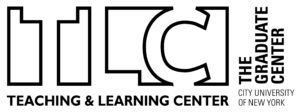Description: In part II of this workshop series on Accessible Online Learning, we will discuss strategies for sustaining and enhancing accessibility for people with visual impairments and/or photo-sensitivities in asynchronous spaces. We will practice (1) using OCR (Optical Character Recognition) in Adobe Acrobat Pro to make any PDF “Text to speech ready” and (2) how to create image descriptions and alternative text to make images, diagrams, and charts on websites, PowerPoints, Blackboard, and journals accessible. We will also discuss tips for font styles and color contrast to meet accessibility standards.
- Learn how to use text-to-speech features
- Learn how to make any text “readable” or text-to-speech ready via Adobe Acrobat Pro (including scanned books and PDFs)
- Learn when and how to add alternative text to describe images, graphs, charts and diagrams in your course materials
- Learn how make websites and/or PowerPoints accessible for people with photosensitivity using high contrast colors palettes
Takeaways: Attendees will leave with ideas on enhancing accessibility in asynchronous online classrooms.
Date and Time: March 19, 2021; 11:00AM-12:15PM
Facilitator Bios:
Francisco Medina is a doctoral student in the Urban Education program at the Graduate Center, CUNY. He is a former mentor to undergraduate students in the CUNY Pipeline program and a research assistant at LaGuardia Community College. In the past, he has worked on various collaborative research projects with, by, and for community colleges students to transform educational practices. His current interdisciplinary work cuts across research in education, social sciences, biology, and the humanities to investigate the ways in which scientism and biologism vis-a-vis the construction of “human nature” co-produce de/humanizing discourses, subjectivities, and institutional practices in education. Other interests include, educational alternatives, learning and identity, developmental psychology, inclusive pedagogies, critical-theoretical learning, and decolonization.
Mike Mena is a PhD candidate in Linguistic Anthropology at the Graduate Center and focuses on how ideologies of race and language converge in ways that reproduce hierarchical arrangements and income inequality. He is currently conducting ethnographic research on the neoliberalization of higher education at a self-described “bilingual” university in Texas. Mike also works as an educational technologist and media-making consultant for educators. He specializes in video production and video/image editing software. In 2019, Mena’s YouTube channel, The Social Life of Language, was recognized with the Society for Linguistic Anthropology’s “Public Outreach and Community Service Award.” The Social Life of Language continues to receive national and international recognition for its multi-modal pedagogical approach and as intellectually informed public activism.






